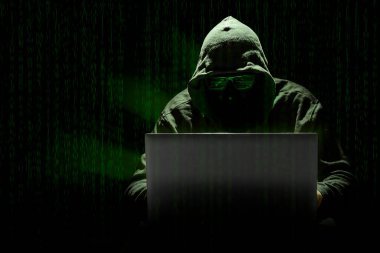Hey guys, today we’re going to go over this; What Hackers Can Do to Your Computer and the Risks Associated with It, it’s a quick and easy tutorial.
How to Protect Yourself from Hackers and How They Work
Recognize and reduce the risks of hacking. Threats to computers are created by people, not by machines. Computer predators prey on others in order to benefit themselves. If you give a predator access to your computer and the Internet, the threat they pose to your security grows significantly. Unauthorized users who breach computer systems to steal, alter, or destroy data are known as computer hackers. They frequently do this by inadvertently installing harmful software. They are able to obtain information that you would prefer they not have thanks to their astute strategies and in-depth technical expertise.
How can hackers find me? Everybody who uses a computer connected to the Internet is vulnerable to the threats posed by computer hackers and online predators, who usually use phony websites, spam emails or instant messages, and cyber scams to infect your computer with malicious malware and jeopardize its security.
Without a firewall, hackers may potentially attempt to gain direct access to your computer and personal data. They can browse the back-end of your own website or listen in on your conversations. Predators can trick you into disclosing private financial and personal information, or worse, by posing as someone else.
What can a hacker do to me? A computer predator may accidentally pounce on the private information you unintentionally disclosed, or malware that a hacker has installed on your computer may covertly transmit your financial and personal information while your computer is online. In either scenario, they will be able to:
- Take use of your passwords and usernames.
- Take your money and create bank and credit card accounts in your name.
- Damage your credit.
- Obtain additional credit cards or Personal Identification Numbers (PINs) for new accounts.
- Purchase things
- To make it simpler for them to use your credit, add themselves or an alias they control as an authorized user.
- Acquire cash advances
- Take advantage of and misuse your SSN.
- Offer your information for sale to third parties who will utilize it for unauthorized or unlawful uses. It’s always important to safeguard yourself from any potential threats of computer hacking.
People who are stalked online by predators can be extremely dangerous. The best approach to stay safe is always to proceed with extreme caution when agreeing to meet an online “friend” or acquaintance in person.
What are the signs that I have been hacked?
Verify the information on your credit cards, personal accounts, and documents. Are any transactions inexplicable? Unauthorized or dubious changes? If so, the malicious virus may have been deployed by hackers or predators.
How can I prevent predators and hackers from using my computer?
Armed with knowledge and resources, you are less susceptible to threat methods and more knowledgeable about computer security threats. Threats from predators and hackers are quite different, but they are equally dangerous.
Stay safe when using the internet.
- Keep a close eye out for predatory conduct in requests from online “friends” or acquaintances.
- Verify personal accounts frequently for correctness, and address any inconsistencies promptly.
- Be extremely cautious while posting personal webpages or visiting chat groups.
- Don’t share too much personal information on your own webpages.
- Avoid discussing financial and personal details online.
- When consenting to meet an online “friend” or acquaintance in person, proceed with utmost caution.
Tips for Security to Avoid Hacking
- Employ a two-way firewall.
- Raise the security settings on your browser.
- Keep your operating system updated.
- Stay away from dubious websites.
- Download software only from websites you can trust. Examine free software and file-sharing programs carefully before downloading them to reduce the risk of computer hacking.
Follow safe email and malware/virus prevention procedures.
- Keep messages from unknown senders private.
- Obtain protection from antispyware software.
- Delete texts you think are spam right away.
- Make use of antivirus software.
- Verify that your computer is running the greatest security software available
Protect Yourself From Risky Internet Threats
machine hackers and predators can easily access an unsecured machine. By employing a spam filter or gateway to screen incoming emails or instant messages, you can further safeguard your computer from hackers. Devices such as Webroot AntiVirus and Webroot(https://www.webroot.com/us/en/home/products/av) Internet Security Complete prevent harmful malware from ever entering your computer, guard against it at all points of entry, and repel any viruses or spyware that may try to infiltrate, including the most cunning and harmful types. Free antivirus and anti-spyware software is available, but it simply cannot keep up with the constant barrage of new malware strains. Malware that hasn’t been discovered yet can frequently cause the most harm, so having current, assured security is essential.




Oh my goodness! an amazing article dude. Thank you However I am experiencing issue with ur rss . Don’t know why Unable to subscribe to it. Is there anybody getting similar rss problem? Anyone who knows kindly respond. Thnkx